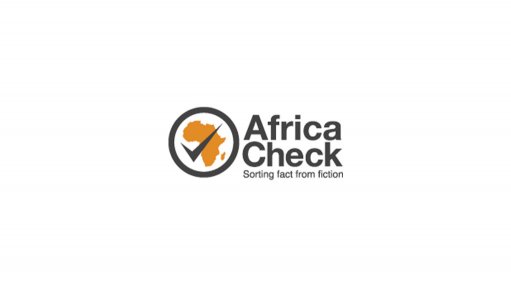
The African National Congress’ 32-page local government election manifesto is titled “Together advancing people’s power in every community: Local government is in your hands”. In the foreword, President Jacob Zuma wrote that the “ANC remains best placed, together with the people, to make qualitative change in people’s lives”.
Here are key claims in the manifesto about the ANC’s past performance in local government that we fact-checked. (Note: We aren’t able to fact-check promises but will keep an eye on whether they are fulfilled.)
Next week we tackle the Democratic Alliance (DA) and Economic Freedom Fighters (EFF) manifestos.
Electricity
According to South Africa’s 2001 Census, 69.7% of households used electricity as their main energy source for lighting then. Statistics South Africa (Stats SA) confirmed that this comprised 8,274,455 households at the time.
(Note: Stats SA’s General Household Survey, which only started in 2002, recorded that 77.1% of households – a total of 8,319,918 households – had access to electricity in that year.)
The latest data from Stats SA’s General Household Survey confirms that 86% of households (a total of 13,403,107) in South Africa were connected to electricity supply in 2014. The number is therefore more than double the figure of 5.8 million in the ANC’s manifesto.
What needs to be kept in mind is that the number of households connected does not reflect the quality of the service. The 2014 General Household Survey found that 66.5% of households rated the quality of electricity services as “good”.
Indigent refers to “households that qualify to receive some or all basic services for free because they have no income or low income”.
Statistics SA’s non-financial census of municipalities for the year ending June 2014 confirmed that 2,048,052 indigent households had received assistance for electricity, out of the 3,482,260 identified indigent households across South Africa.
The recommended amount is 50 kWh per household per month – enough for basic lighting, to power a small black and white TV, a small radio and to do “basic ironing and basic water boiling”, according to the department of energy.
However, Earthlife Africa, a non-profit organisation, has argued that 50 kWh is not sufficient and, in 2010, proposed a quantity of 200 kWh.
In 2014/15, 154 municipalities supplied 50 kWh and a further 18 quantities of between 60 kWh and 250 kWh.
Researched by Liesl Pretorius & Lebohang Mojapelo, Africa Check, a non-partisan organisation which promotes accuracy in public debate and the media. Twitter @AfricaCheck and www.africacheck.org